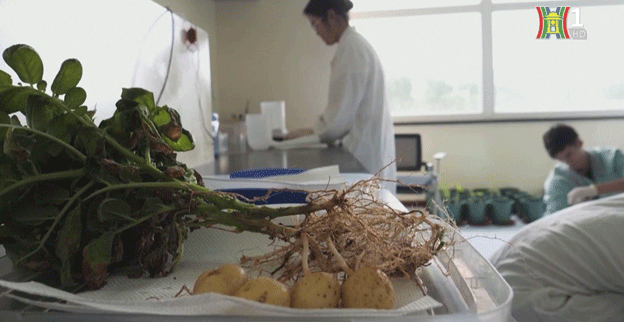Potatoes, a staple food for millions, are highly sensitive to changes in temperature and climate. As global temperatures rise, Chinese scientists are working to develop heat-resistant potato varieties to secure food supplies. At a research facility northwest of Beijing, molecular biologist Li Jieping and his team have been experimenting with potatoes under elevated temperatures, producing smaller and lighter tubers than average.
This research is crucial as China is the largest potato producer globally, accounting for over 20% of the world’s production. However, the country’s northern potato-growing regions, such as Hebei and Inner Mongolia, are increasingly vulnerable to climate-induced challenges.
Findings from High-Temperature Trials
Li’s team grew potatoes in controlled environments with temperatures 3°C higher than the current average for northern China. Their findings, published in Climate Smart Agriculture, revealed significant impacts:
- Potato tuber development accelerated by 10 days under elevated temperatures.
- Total yield decreased by more than 50%, with some tubers weighing as little as 136 grams—half the average weight.
These results highlight the urgent need for climate-adaptive strategies to sustain production.
Collaborative Efforts to Build Resilience
Li Jieping’s work aligns with a broader government initiative to adapt agriculture to warmer, wetter conditions. Strategies include:
- Shifting planting schedules: Moving potato cultivation from early summer to spring to avoid peak heat.
- Relocating farms: Encouraging farming in higher-altitude regions with cooler climates.
The Chinese government has prioritized these measures as part of its long-term food security strategy, emphasizing the importance of research and innovation in combating the effects of climate change.
Global Implications for Potato Production
According to an October report by the United Nations, global temperatures could rise by up to 3.1°C above pre-industrial levels by 2100. Such increases would pose severe risks to agricultural productivity worldwide, especially for climate-sensitive crops like potatoes.
Looking Ahead
Molecular biologist Li emphasizes the urgency of proactive measures:
“Climate change is happening, and we understand its potential to negatively impact agriculture. Developing solutions now is critical to mitigating future risks.”
While current trials focus on high-temperature regions in northern China, the lessons learned could have broader applications, benefiting farmers worldwide.
China’s research into heat-resistant potatoes underscores the critical role of science and innovation in addressing climate challenges. By developing climate-resilient crops and implementing adaptive farming practices, the country is setting an example for safeguarding food security in a warming world. However, global collaboration and continued investment in agricultural research are essential to ensure these innovations are accessible to all.







